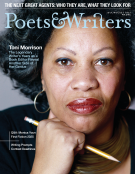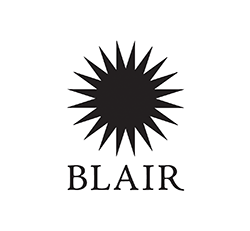The nonprofit press Blair in Durham, North Carolina, proudly champions narratives with local roots, overlooked stories, and perspectives apart from the mainstream. “We gain some unique editorial perspectives by being outside of the traditional publishing center of the urban Northeast,” says Robin Miura, senior editor and associate publisher. John F. Blair founded his eponymous press—John F. Blair, Publisher—in 1954 in Winston-Salem, North Carolina, and for over sixty years Blair, and later his family members and staff, published poetry, regional nonfiction, and folklore centering on the U.S. Southeast, along with cookbooks, travel guides, and a handful of novels.
In 2018, Carolina Wren Press (CWP) acquired John F. Blair’s backlist and trademarks to become a new press: Blair. Founded by Judy Hogan in 1976, CWP had a mission to publish emerging voices as well as authors and subjects historically marginalized by conventional publishers. John F. Blair’s strong backlist of collected narratives of formerly enslaved people and Native Americans and memoirs and history from the civil rights era aligned with CWP’s mission. The new Blair publishes ten to twelve books per year in fiction, nonfiction, and poetry. “We use our quirky gift, travel, and regional backlist to float our literary and poetry habits,” says Miura.
Recent titles include the poetry collection The Opposite of Cruelty by Steven Leyva, published in March, and the novel Dancing Woman by Elaine Neil Orr, published in January. Blair’s next open reading period, for the new Polaris Poetry Series, will be from July 1 to July 31. The series, which will be edited by poet Cynthia Manick, recognizes an Afrofuturism or Afrofuturism-adjacent poetry collection. There is no fee to submit. Sandra Beasley, Blair’s poetry editor, will select the winner of the upcoming Wren Poetry Prize (for a first, second, or third full-length poetry collection), which opens for submissions on September 15. Considering the landscape for small presses today, Miura cites a 1974 speech that John F. Blair gave in which he said the book publishing industry was in danger of becoming “uniform, mechanized, [and] controlled.” However, he declared, “I believe that the best days of independent publishing are still to come.” Miura adds, “I think he’d be pleased with Blair today.”









